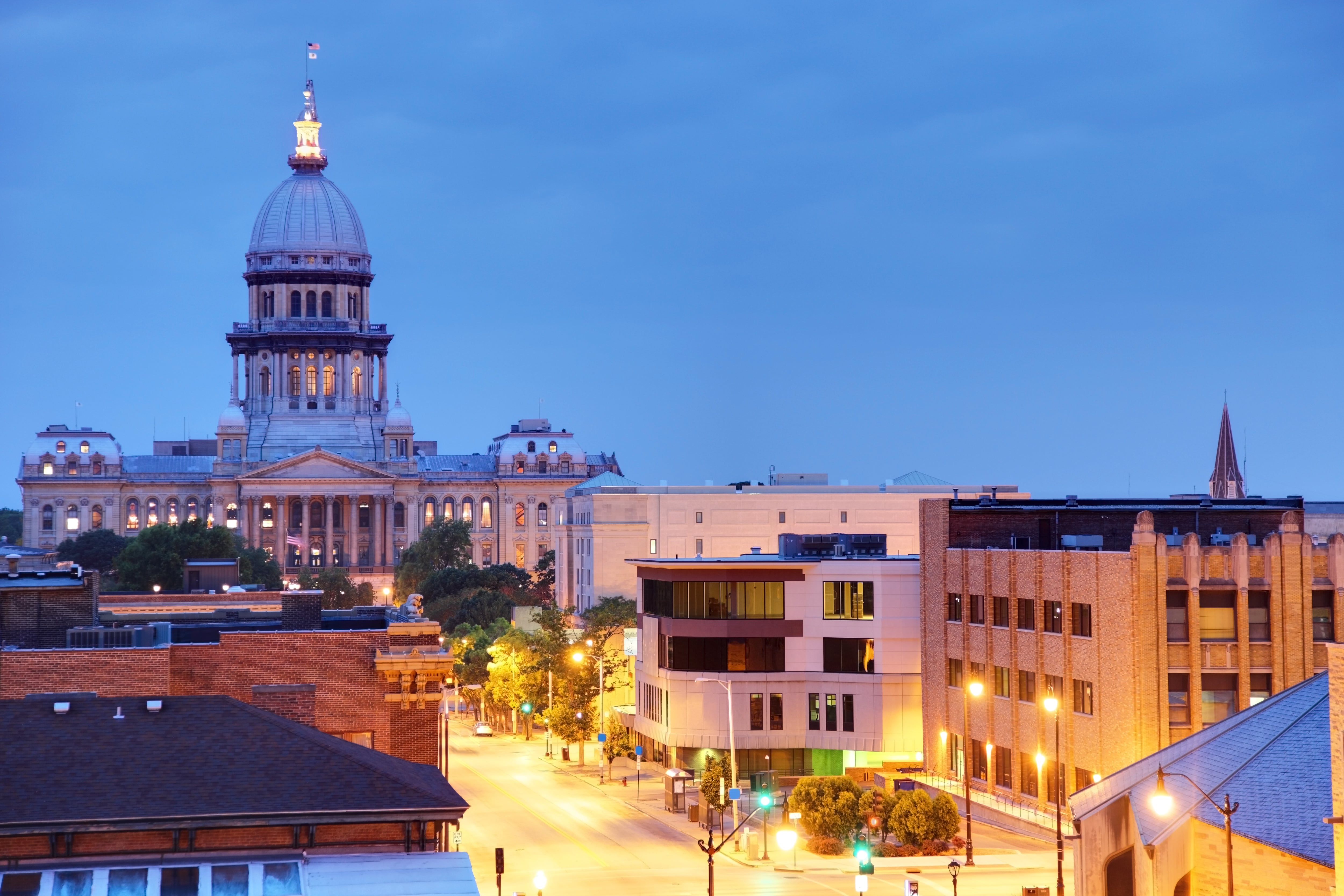After a COVID year and a short lame-duck legislative session, the Illinois legislature has come roaring back with hundreds of bills introduced by its members.
Many bills address problems created or exacerbated by the pandemic, while some have to do with an ambitious push to remap the state’s legislative districts. A number gaining steam this week are education-focused, covering hair discrimination, Asian American history curriculum, and the ongoing debate over whether Chicago should have an elected school board.
In addition to weighing bills to send to the governor’s desk before the legislative session ends May 31, the General Assembly has to decide on the state’s budget. Gov. J.B. Pritzker proposed earlier this month adding $350 million in the state’s evidence-based funding formula, after saying that he would keep the budget flat.
With the session set to adjourn Monday, here are the education bills we are closely watching.
Bills with strong momentum in the final week:
Asian-American history curriculum requirement: Rep. Jennifer Gong-Gershowitz and Sen. Ram Villivalam introduced a bill, HB0376, that would require schools across the state to teach elementary and high school students about Asian American history. The murder of six Asian women in Atlanta and a rise in hate crimes targeting Asian Americans galvanized the conversation. Both the House and Senate have passed the bill, which now goes back to the House for a procedural vote before heading to the governor’s desk.
Protecting districts from enrollment drops: Illinois reported a bigger-than-usual decline in enrollment numbers this year: About 35,000 students, or 1.9%, left public schools with significant declines among kindergarten through third-graders. Since state school funding is tied to student enrollment — and to prevent school districts from being penalized due to some possibly pandemic-related declines — this bill, SB0813, would essentially hold districts harmless for recent losses, allowing them to use enrollment figures for the 2020-2021 or 2019-2020 school year, whichever is more advantageous, for the fiscal years 2022-2024. The bill has passed both chambers of the general assembly and is heading to the governor’s office.
Banning hair discrimination in schools: The Jett Hawkins Bill, SB0817, named after a preschool student who was forced to remove his braids at a Chicago private school, would prevent private and public schools, including charter schools, from discriminating against students based on hairstyles historically associated with race, ethnicity, or hair texture. While efforts to ban hair discrimination have surfaced in other states, Illinois’s bill would be one of the more comprehensive measures, extending beyond public school districts. It has cleared the Senate by an overwhelming margin and is currently in the House.
Making up for lost services: HB2748 would allow for special education students who turned 22 during pandemic-related school closures to extend their services through the end of the following school year. In Illinois, students typically lose access to special education services the day before their 22nd birthday. This bill passed the Senate unanimously this week and now heads back to the House for a procedural vote.
Bills with an uncertain future:
Sex education overhaul: This measure would require public schools, including charters, to teach personal health and safety beginning in kindergarten and age-appropriate, medically-accurate comprehensive sexual education, from sixth grade through high school. Lessons would include healthy relationships, anatomy, puberty, gender identity and sexual orientation and identity. Opponents of SB0818 have said local districts should be able to decide the sweep of their curriculum; advocates have said Illinois is now in the minority of states without a comprehensive set of state standards. One point of contention: Whether to require districts to teach consent — the latest amendment suggests they should but does not require it.
Elected school board for Chicago: The clock is ticking on a compromise on an elected school board bill that would establish elections for a 21-person elected board by 2023. Chicago Mayor Lori Lightfoot has pushed a different bill that would establish a smaller, hybrid board with some elected members, but a majority of appointees. Rumors of compromise measures have been floating around Springfield, but there has yet to be a consensus. The house version of the bill, HB2908, sponsored by Rep. Delia Ramirez will head to a Senate committee meeting on Wednesday.
Unionizing principals: Chicago’s principals could join colleagues in San Diego and New York and unionize if HB3496 passes. The bill narrows the definition of who is a manager in only one Illinois school district — Chicago — and faces considerable opposition. Proponents argue that unionizing would give principals more flexibility to make decisions. Critics have said it singles out the state’s largest school district and that principals already enjoy considerable autonomy in the district. The bill is slated for a hearing on the Senate floor this week.
Creating bachelor’s programs for early educators at community colleges: This bill, SB1832, aims to tackle high turnover and low pay in the early education industry by establishing bachelors-level early childhood education programs at community colleges across the state. Sen. Cristina Pacione-Zayas, who introduced SB1832, said the goal of compromise discussions is to better bridge community colleges and four-year universities so students may stay in their communities and attend classes at two-year institutions while having some access to university-level coursework.
Bills that have sparked conversation but have a narrow pathway to pass:
Another bill that addresses the public education cutoff that students with disabilities face when they turn 22 22. HB0040 would apply more broadly, extending the time that young adults can receive special education services until the end of the school year. This bill has made it out of committee but time is ticking for broader debate this session.
Update: This story has been updated to reflect that special education transition bill HB2748 replaced another transition bill, SB1821.







